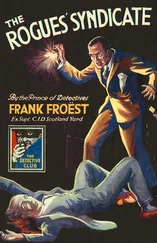He took his case into the bedroom and turned on the TV. Zapping through the channels, he came across a concert from the Royal Albert Hall. Arias from La Traviata , sung by Kiri Te Kanawa. He started to unpack, humming with the music and wondering what he might like as a nightcap.
The music stopped, but he was folding a shirt and didn't register that the concert had ended. In the background, the news took over.
'. . . in Chile. It is not yet known whether the disappearance of the Norwegian family can be linked to similar incidents that are said to have occurred around the same time off the coasts of Peru and Argentina. In all three countries fishing-boats have disappeared or been found abandoned at sea. None of those involved have been traced. The conditions were calm and sunny when the family of five boarded the trawler on a deep-sea fishing expedition.'
He smoothed a sleeve and folded it to the middle.
'Costa Rica is currently experiencing a jellyfish invasion of unprecedented proportions. The so-called Portuguese man-of-war, or "bluebottle," has descended on the area, swamping coastal waters. Local media reports say that fourteen people have been killed by the highly poisonous creatures, while many others have been injured, including two British citizens and a German. The number of missing is still to be confirmed. The Costa Rican Foreign Office has called an emergency session of Parliament, but firmly rejects the suggestion that beaches should be closed, insisting that there is no real threat to swimmers.'
Johanson stopped what he was doing. 'Those assholes,' he muttered. 'Fourteen dead! They should have closed the beaches long ago.'
'Swarms of jellyfish are also causing concern off the coast of Australia. This time the culprits are thought to be box jellyfish, another highly venomous species. The local authorities are urging people to stay out of the water. Over the past hundred years, box jellyfish have caused seventy deaths, making them more dangerous to man than sharks.'
'In another story of marine tragedy, fatalities have been reported off the coast of western Canada. The exact cause of the accidents, which resulted in the sinking of several tourist vessels, is not yet known. Reports suggest that navigational errors may have caused them to collide.'
Johanson was gazing at the screen now. The newsreader had put down a piece of paper and was smiling emptily into the camera. 'And now for a round-up of today's other stories…'
Johanson thought of the woman he'd seen in Bali, who'd flailed in the sand, shaken by convulsions. He hadn't touched the creature and neither had she. She'd been walking along the beach when she noticed something floating in the shallows and had fished it out with a stick. Cautious by nature, she'd kept it at arm's length, turning it this way and that. Then she'd made a mistake.
The Portuguese man-of-war belonged to the genus Physalia , a type of hydrozoa that scientists still found baffling. Strictly speaking, it wasn't a jellyfish but a floating colony of tiny organisms, hundreds of thousands of polyps, grouped according to function. The main body, a jelly-like float tinted violet or blue, had a gas-filled crest that rose above the water, allowing the colony to sail across the surface. You couldn't see what hung beneath it.
But you knew as soon as it touched you.
A net of tentacles up to fifty metres long and covered with miniscule stinging cells swept beneath each Portuguese man-of-war. The structure and purpose of the cells was a masterstroke of evolution. Each consisted of a hollow sphere that curled in on itself to form a coiled tube tipped with a harpoon-like barb. At the slightest touch the tube would unfurl, bursting forth at a pressure equivalent to seventy exploding tyres. Thousands of barbed harpoons would penetrate the victim's flesh, injecting a mixture of phenols and proteins that attacked the blood and nerve cells. The victim's muscles would contract and pain would sear the skin. Shock would follow, then breathing difficulties and heart failure. Those fortunate enough to be close to the shore usually survived, but divers and swimmers further out stood little chance against the trailing tentacles.
The woman on the beach in Bali had dropped the hydrozoan but the stick had brushed her toe. It must have left a trace of venom – enough to ensure that she never forgot it.
But the Portuguese man-of-war was harmless compared to the box jellyfish – Chinmex fhekeri , the deadly Australian sea wasp.
In the course of evolution, nature had developed an impressive array of toxins. Chinmex Jleckeri was the piece de resistance . A single box jellyfish contained enough poison to kill 250 people. It's highly potent venom paralysed the nervous system, causing immediate loss of consciousness. Within minutes, or sometimes seconds, most of its victims suffered heart failure and drowned.
All this ran through Johanson's mind as he stared at the screen.
Fourteen dead and countless others injured in a matter of weeks. Had the death-count ever been so high on a single stretch of coastline from just a single species? And what about the disappearing ships?
Portuguese men-of-war in South America. Box jellyfish in Australia.
Bristleworms in Norway.
It's probably coincidence, he thought. Swarms of jellyfish appeared all over the world. The holiday season wouldn't be the same without them. They had nothing in common with worms.
He tidied away the last few items of clothing, switched off the television and went into the living room to listen to music or read. But he didn't put on a CD or pick up a book. For a while he paced up and down, eventually stopping at the window. The streetlamps lit the street outside.
The lake had been so peaceful…
It was peaceful here too…
When things were so peaceful, there was usually something wrong.
Don't be ridiculous, Johanson told himself.
He poured himself some grappa, took a sip, and tried to forget about the news.
Then he remembered Knut Olsen, a fellow biologist at the NTNU. He knew a lot about jellyfish, coral and sea anemones.
Olsen picked up on the third ring.
'Were you asleep?' asked Johanson.
'Not with the kids still up,' said Olsen. 'It's Marie's fifth birthday today. How was the lake?'
Olsen was a perpetually cheerful family man whose cosy domestic life seemed like a nightmare to Johanson. They never saw each other socially, unless you counted lunch breaks, but Olsen was a nice guy with a decent sense of humour. With four children he needed it, thought Johanson. 'One of these days, you should come with me,' he said, although they both knew it wouldn't happen. 'Have you seen the news?'
There was a short pause. 'The jellyfish, you mean?'
'Right first time. What's going on?'
'It's obvious, isn't it? Biological invasions happen all the time. Frogs, locusts, jellyfish…'
'But Portuguese men-of-war and box jellyfish?'
'It's unusual…'
'In what way?'
"They're two of the world's deadliest sea creatures. And there's something peculiar about what they're saying on the news.'
'Seventy fatalities in a hundred years?' said Johanson.
'Oh, that's rubbish.' Olsen gave a derisive snort.
'Too many?'
'Too few! The real death toll's much higher – ninety at least, if you count the Gulf of Bengal and the Philippines, not to mention all the unreported and unexplained cases. Australia has always had a problem with box jellies. They spawn in the river mouths north of Rockhampton. Almost all the accidents happen in the shallows – they can kill you in less than three minutes.'
'Is it jellyfish season?'
'In Australia, yes – October to May. In Europe they only really bother you when it's too hot to stay out of the water. We were in Menorca last summer and the kids were going crazy. The whole place was inundated with Velella .'
Читать дальше












